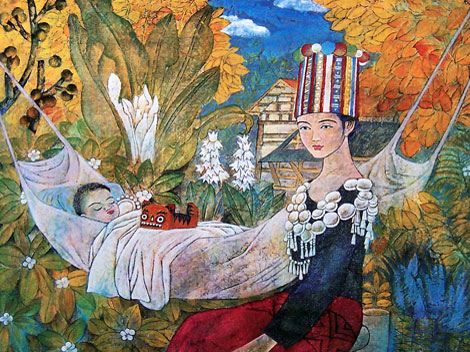
The Jingpo population is 119,209. Most of them live in Luxi, Longchuan, Yingjiang, Ruili and Lianghe counties of Dehong Dai-Jingpo Autonomous Prefecture, Yunnan Province.
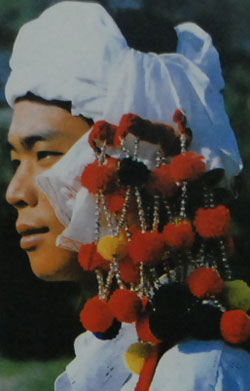
Jingpo men wearing white turbans with colorful small woollen balls decorated on one side. They are called hero knots.
The Jingpos make their homes in deep mountain areas about 1,500 to 2,000 meters above sea level. The mild climate, adequate rainfall and fertile land enable the plants to grow all the year round. Besides rice, maize and millet, the Jingpo area is rich in mineral resources and produces many valuable cash crops and tropical fruits such as padauk, nanmu, bamboo, rubber, tung tree, coffee, tea, lemongrass, pineapple, jackfruit, mango and bajiao banana. The deep forests are homes of many rare animals and birds.
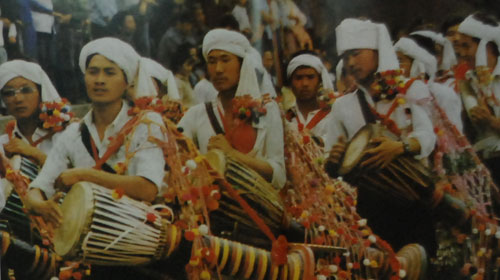
The elephant drum players on the Munao Festival.
The Jingpos have close relations with the ancient Di and Qiang peoples coming from the Qinghai- Tibet Plateau. The ancestors of the Jingpos were called "Xunchuanman" or the Gaoligong people in the Tang historical documents. In the Yuan, Ming and Qing dynasties, other names such as "Echang", "Zhexie" and "Yeren" appeared successively. After the founding of new China, they were officially called the Jingpo Nationality.
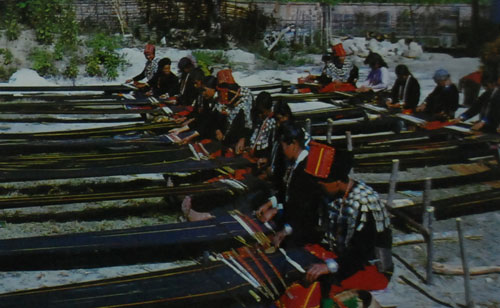
Jingpo women love to wear straight skirts, which are woven in this way.
The Jingpos have five branches. Its language belongs to the Tibeto-Burman group in the Sino-Ti- betan family. In the past, they have no written language. At the end of the 20th century, a Romanization writing was created.
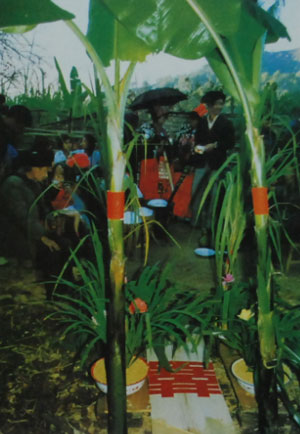
At a Jingpo wedding, the new couple will step across such a bridge covered with the Chinese character "xi", meaning happiness.
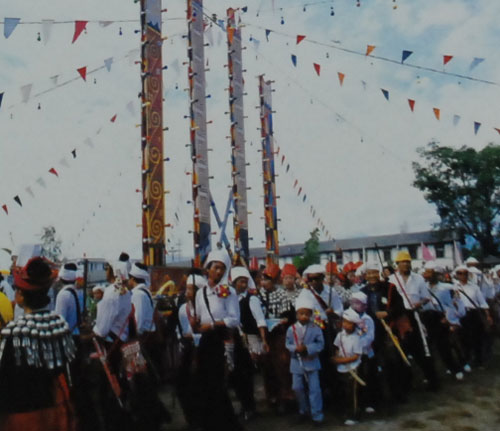
The grand Munao Festival





